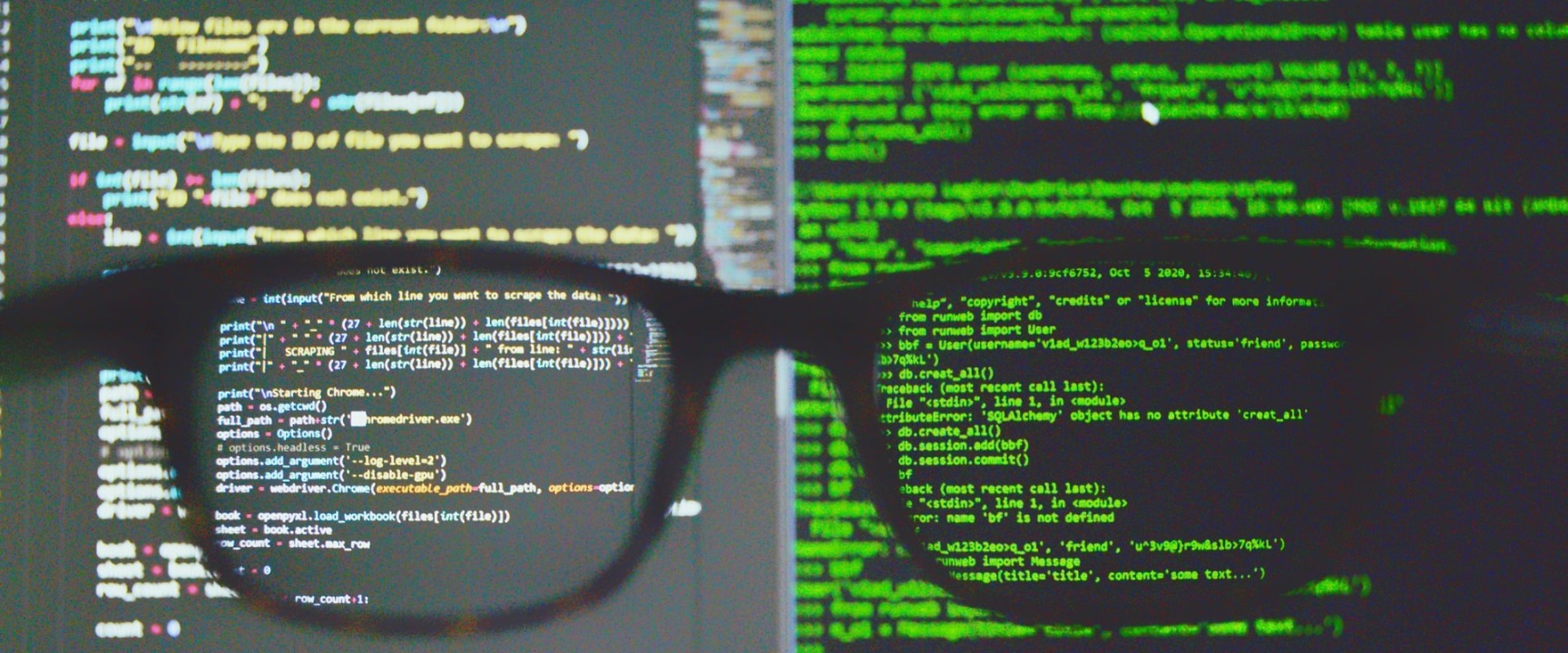NEW
Proxify is bringing transparency to tech team performance based on research conducted at Stanford. An industry first, built for engineering leaders.
Learn more
Software Engineering
Backend
Jan 19, 2021 · 7 min read
PHP vs Python: What should run on your web app backend?
What language should be on the server-side of your web app? Let’s look at web frameworks, development speed, and the performance PHP and Python can offer.
Kseniia Kyslova
Specialist in contentmarketing
Verified author

Inhoud
- Market shares of Python vs PHP for web development
- Python vs PHP speed of code execution
- Python vs PHP performance of web apps
- Python and PHP web development frameworks
- Laravel web framework for PHP
- Django web framework for Python
- Looking for PHP or Python developers?
- Fast PHP and Python Q&A
- Is PHP faster than Python?
- Which is better Python or PHP?
- Can I use Python instead of PHP?
- Vind een ontwikkelaar
Photo by Alex Chumak on Unsplash
PHP and Python are both-general purpose, object-oriented, interpreted programming languages. They have little in common in terms of syntax and rock in different fields of the IT industry. While PHP is the king of web development, Python gained the most traction in data science, machine learning, and AI.
If they are that different, why should we compare PHP vs Python? There is one battlefield where those languages compete. They both work fine on the backend of websites and web apps.
So, which language should be on the server-side of your web project in 2021? Let’s look at their web frameworks, development speed, and performance characteristics to see what to choose, PHP or Python.
Market shares of Python vs PHP for web development
Despite being on top of its overall popularity, Python hasn’t won any significant share of the server-side web development market. W3tech statistics show that Python runs on as few as 1.4% of websites. At the same time, PHP is used on the backend of 79% of websites.
Having been a go-to solution for web development for decades, PHP is supported by any web hosting provider by default. It won’t be a problem to host your web project on the infrastructure supporting the latest version of PHP.
In contrast, Python is not always welcomed by hosting services. Companies selling shared hosting, usually don't offer any options for Python at all. Due to little demand, some hosting providers may be unwilling to update Python versions, provide support for certain frameworks, or allow the installation of particular Python modules.
Versterk je team
De techprofessionals van Proxify zijn een waardevolle aanvulling op je team en bieden deskundige, duurzame oplossingen. Met een bewezen trackrecord in meer dan 500 sectoren werken onze specialisten moeiteloos mee aan je projecten. Zo helpen ze je bedrijf aan versnelde resultaten en blijvend succes.
Python vs PHP speed of code execution
Being interpreted languages, both Python and PHP are sometimes blamed to be slow. Both developers’ communities continue working on ways to improve the language interpreters’ speed.
A major improvement of PHP speed was made after the release of Zend Engine 3.0 for PHP 7. With this scripting engine, PHP code interpreting became two times faster than with its predecessors.
With Python interpreters’ speed, things get more complicated because it has several implementations. CPython standard implementation is considered the slowest, while PyPy is four times faster because it uses the JIT compilation method.
However, the performance of a real-world project requires more than just quick execution of code. An app performance optimization is often about making decisions to balance speed and scalability. For example, if speed is a priority, you’ll write a script that loads an app view into memory upfront. But if you value scalability more, you’ll write a script that loads data in chunks.
Python vs PHP performance of web apps
The experiments run by the Benchmark Game team for example apps showed that PHP outperforms Python in speed, memory usage, code size, and CPU load. However, that doesn’t mean Python will bring an unacceptable loss in performance for your web app. It still may work fine under your target loads if you take measures for its optimization.
Python and PHP web development frameworks
Web developers tend to build web apps using frameworks that save them time and help create more standardized apps.
PHP powers about 40 web backend frameworks and content management systems, including Joomla and WordPress. The most popular PHP frameworks are Laravel and Codeigniter micro-framework.
The list of Python web frameworks is even longer and includes 60 options that are currently supported. The most used PHP alternatives among Python frameworks are Django and Flask micro-framework.
Let’s look at the most popular “Batteries included” Python and PHP web frameworks used for creating complex and scalable apps.
Laravel web framework for PHP
Laravel is often called the only true option for a PHP framework. It implements Model View Controller (MVC) architecture and gives developers some benefits:
- Plug-and-play authentication and authorization system
- Artisan CLI with a "help" screen showing commands’ options
- Blade built-in templating engine with zero performance overhead
- Eloquent ORM and smooth database migrations
- Laravel Vapor serverless deployment platform
Laravel has a well-developed ecosystem of services that augment this framework, such as Forge for scaling, Cashier for subscription billing integration, or Homestead for creating a convenient development environment.
Django web framework for Python
Most of the Python web apps built recently use Django. It implements the Model View Template (MVT) architecture and leverages:
- A collection of reusable code packages for backend developers
- URLconf for mapping clean URLs patterns to app views
- Customizable templates for designers and frontend developers
- A robust and out-of-the-box authentication system
- Automatic admin interface module for content management
Django scales well as it separates database and app layers, allows adding database, caching, and web servers, and has its own cache framework. It has proven to be stable when used on large projects, such as Instagram, Pinterest, and Disqus.
Apart from fullstack frameworks both Python and PHP have great lightweight solutions with core components for building backends or APIs for small web apps or services, those are Codeigniter and Flask micro-frameworks.
Looking for PHP or Python developers?
To build a web app with a powerful backend, you need a specialist who knows your chosen programming language’s advantages and limitations. If you are looking for an experienced PHP or Python developer right now, send us your talent request.
Knowing your goals and requirements, we’ll match you with a candidate from our pool of vetted specialists. With Proxify.io you’ll hire senior developers for your Python or PHP project within the next two weeks at rates starting from 29€ / h.
Fast PHP and Python Q&A
You ask, we answer.
Is PHP faster than Python?
Both Python and PHP are interpreted languages and are considered slow. After the release of Zend Engine 3.0 for PHP 7, PHP code interpreting became two times faster. When it comes to Python, interpreters’ speed varies depending on the implementation. CPython standard implementation is considered the slowest, while PyPy is four times faster.
Which is better Python or PHP?
Both PHP and Python have great frameworks that make web development fast and efficient. In terms of web apps performance benchmarks, PHP outperforms Python in speed, memory usage, code size, and CPU load. Yet, that doesn’t mean Python brings an unacceptable loss in performance for a web app. It works fine if you take measures for its optimization.
Can I use Python instead of PHP?
You can build an equally good backend for your web app using PHP Laravel or Python Django frameworks. Yet, you should take into account that PHP is supported by any web hosting provider by default while Python is not always welcomed by hosting services. Companies selling shared hosting, usually don't offer any options for Python at all.
Was this article helpful?
Vind jouw volgende ontwikkelaar binnen enkele dagen, niet maanden
In een kort gesprek van 25 minuten:
- gaan we in op wat je nodig hebt om je product te ontwikkelen;
- Ons proces uitleggen om u te matchen met gekwalificeerde, doorgelichte ontwikkelaars uit ons netwerk
- delen we de stappen met je om de juiste match te vinden, vaak al binnen een week.
